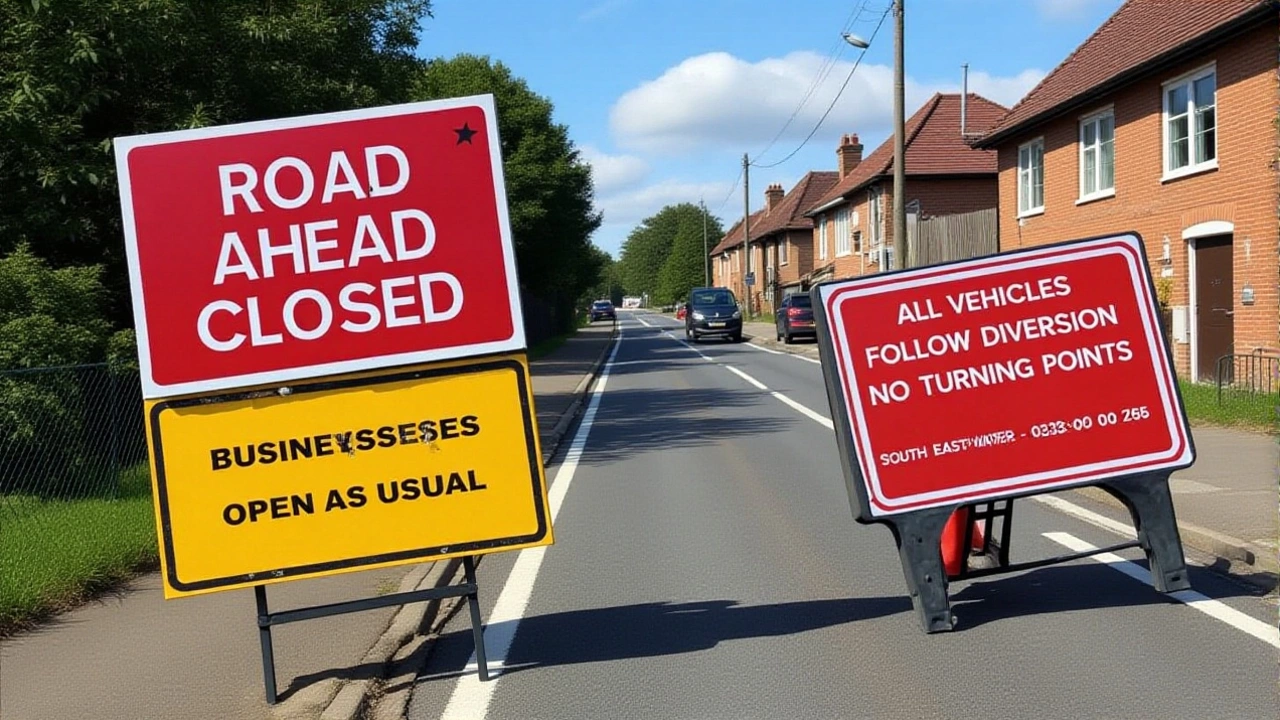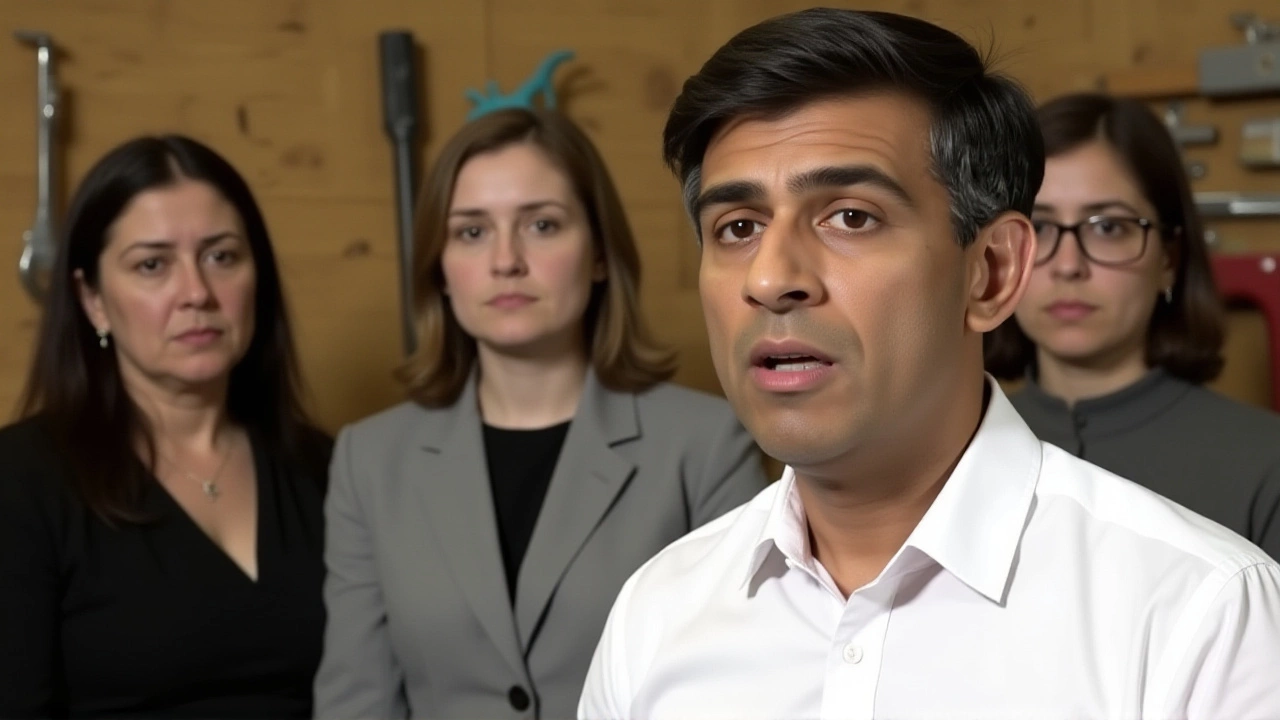Accusations of a “chumocracy” are swirling around the Conservative Party as insiders close to Rishi Sunak, Prime Minister are being ushered into the most secure constituencies ahead of the 2024 general election. The latest flashpoint? Deputy political secretary David Goss, Deputy Political Secretary landing the winnable seat of Wellingborough and Rushden – a constituency the Tories lost in a bruising by‑election on 15 February 2024.
Historical Context: Safe Seats as Political Real Estate
Seat‑selection has never been a perfectly democratic process, but the current wave feels different. In the 1990s Labour famously shunted former advisers like Yvette Cooper and the Miliband brothers into safe constituencies after they’d spent years behind the scenes. The same playbook re‑emerges now, only this time it’s the governing Tories who are being called out.
Since the 2019 landslide, more than a dozen of Sunak’s own advisers have been earmarked for seats vacated by retiring MPs. Among them is former army officer James Clark, who served as a special adviser to Defence Secretary Grant Shapps and was selected for Great Yarmouth on 6 June 2024. Another is former Home Office adviser Katie Lam, who secured the Weald of Kent seat back in December 2023.
The Selection Controversy Unfolds
The Telegraph’s exclusive report, published 7 June 2024, paints a picture of systematic placement of “political careerists” into the party’s safest districts. The piece quotes a departing Tory MP who warned that the rank‑and‑file are being sidelined in favor of “people who have never lived outside the Westminster bubble.”
According to the same report, Conservative Campaign Headquarters (CCHQ) allegedly blocked several right‑wing hopefuls from contesting these seats, effectively handing them to Sunak’s inner circle. The numbers add up: three serving advisers to the Prime Minister, seven current or former special advisers to other ministers, and even the daughter of a former Conservative MP have all been short‑listed for open constituencies.
And it isn’t just the Tories. Across the aisle, Labour’s campaign machinery has been accused of similar manoeuvres. Sir Keir Starmer’s former adviser Uma Kumaran is reportedly lined up for Stratford and Bow, while ex‑adviser Chris Ward has been earmarked for Brighton Kemptown and Peacehaven after MP Lloyd Russell‑Moyle’s resignation.

Reactions from Party Members and the Electorate
Local interviews in Sunak’s own backyard – Richmond and Northallerton – reveal a growing sense of frustration. Long‑time Conservative voters say they feel “taken for granted” as their safe seats become launchpads for Westminster aides with little local experience.
One Richmond voter, who asked to remain anonymous, told us, “We’ve always backed the party, but when the candidate has never set foot in the town, it feels like a betrayal.” The sentiment is echoed in Northallerton, where a senior party activist warned that the strategy could backfire if voters decide to vote tactically or switch allegiance.
Adding fuel to the fire, Labour seized a May 2024 mayoral election in Richmond’s surrounding area with a landslide victory, signaling that even the most secure Tory heartlands are vulnerable.
Impact on the 2024 Election Outlook
Polling firms have flagged a potential “decimation” of the Conservative vote if the party is perceived as a self‑selecting elite. The fact that 134 sitting MPs – roughly 20 % of the 2019‑2024 Parliament – have already announced they will not stand again only amplifies the uncertainty.
Analysts argue that the practice of parachuting insiders could erode the party’s traditional ground game. Grass‑roots activists, who normally energise canvassing, may feel disengaged, reducing voter turnout in key battlegrounds.
Meanwhile, the defection of former Conservative Deputy Chairman Lee Anderson, who joined Reform UK in March 2024, underscores the internal turmoil. His exit has been cited as evidence that the party’s own right‑wing base feels alienated by the current leadership’s selection tactics.

What Comes Next? The Road to Election Day
Both parties will likely double‑down on their candidate‑selection processes in the coming weeks. CCHQ has promised a “transparent” review, but insiders say the real decision‑makers remain the Prime Minister’s office and senior party strategists.
For voters, the key question is whether they will prioritise party loyalty over local connection. If the backlash grows, we could see a series of tactical votes that knock the Tories out of seats they’ve held for decades.
Ultimately, the controversy forces a broader conversation about how modern parties balance the need for experienced operatives with the democratic principle of local representation. The outcome could reshape the way British politics fields its candidates for generations.
Frequently Asked Questions
Why are parties accused of “parachuting” candidates?
Parachuting refers to placing party insiders – often former advisers or staffers – into safe constituencies without local ties. Critics argue it sidelines grassroots members and undermines democratic candidate selection.
Which Tory figures have been highlighted in the recent controversy?
The report names Deputy Political Secretary David Goss, former Defence adviser James Clark, and ex‑Home Office adviser Katie Lam as notable examples of Sunak allies set to contest winnable seats.
Is Labour doing the same thing?
Yes. Former Starmer adviser Uma Kumaran is slated for Stratford and Bow, and ex‑adviser Chris Ward has been selected for Brighton Kemptown, indicating both parties rely on insider candidates.
How might this affect Conservative prospects in Richmond?
Richmond, Sunak’s own seat, saw Labour win a major mayoral race in May 2024, and local Tory voters have expressed frustration with candidate selections. The combination could make the seat far less secure than in previous elections.
What does the defection of Lee Anderson indicate?
Anderson’s move to Reform UK highlights internal dissent within the Conservative ranks, especially among right‑wing figures who feel marginalized by the current leadership’s candidate‑selection strategy.
